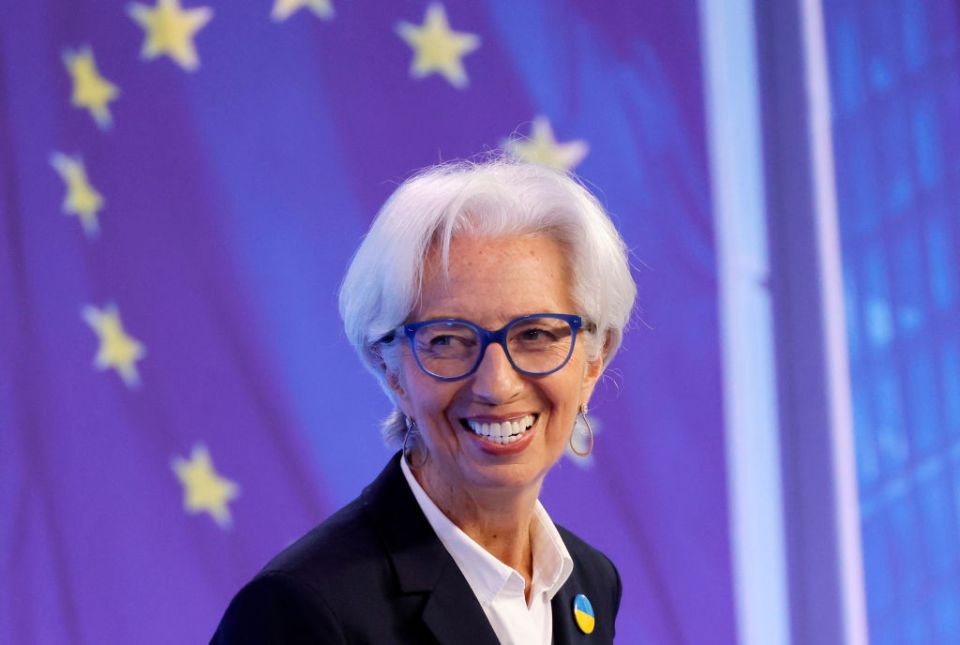German inflation bungle takes shine off euro figures as ECB remains committed to aggressive rate hikes

Inflation in the eurozone fell again last month but experts have warned the drop will not convince the European Central Bank (ECB) to stop hiking interest rates aggressively.
The rate of price increases among the group of 19 countries using the euro dropped to 8.5 per cent annually, down from 9.2 per cent, according to figures from eurostat out today.
The decline was faster than analysts expected.
Inflation in the common currency bloc has been turbocharged by soaring energy prices caused by Russia removing gas supplies from the European market after it invaded Ukraine just under a year ago.
That reduction in energy supply prompted economists to rush out predictions of black outs sweeping across Europe and publish dire recession warnings.
However, a rapid build of liquified natural gas imports and a mild winter in Europe has helped rebalance the bloc’s energy market, putting inflation on a downward trend.
Predictions of a tough recession in Europe caused by businesses reining in production due to sky high energy prices now look slightly overcooked.
However, it reckons the UK will be the only rich country to suffer an economic contraction in 2023.
Inflation in Europe is actually likely to be a lot higher than estimated by eurostat due to Germany being excluded from the calculations as a result of its statistics office bungling its own inflation numbers.
“We can’t take today’s inflation data at face value due to fact that Germany’s statistical office dropped the ball, failing to produce an early estimate for January inflation, due to “technical difficulties”,” Claus Vistesen and Mel Debono chief eurozone economist and senior European economist respectively at consultancy Pantheon Macroeconomics, said.
Today’s signal that price pressures are scaling back is unlikely to move the needle on ECB president Christine Lagarde’s commitment to “stay the course” on aggressive interest rate hikes this year.

The central bank for the euro area is expected to lift borrowing costs 50 basis points again tomorrow and launch further such hikes throughout the year.
“The upshot is that the larger-than-expected drop in headline inflation won’t deter the ECB from raising interest rates by 50bp tomorrow. We think that the continued strength of underlying price pressures will encourage them to stick to a hawkish message, and ultimately to raise the deposit rate to a peak of 3.5 per cent,” Jack Allen-Reynolds, senior Europe economist at consultancy Capital Economics, said.
The Bank of England is likely to follow suit with a 50 point hike tomorrow. The US Federal Reserve will probably slow down to a 25 point rise today.